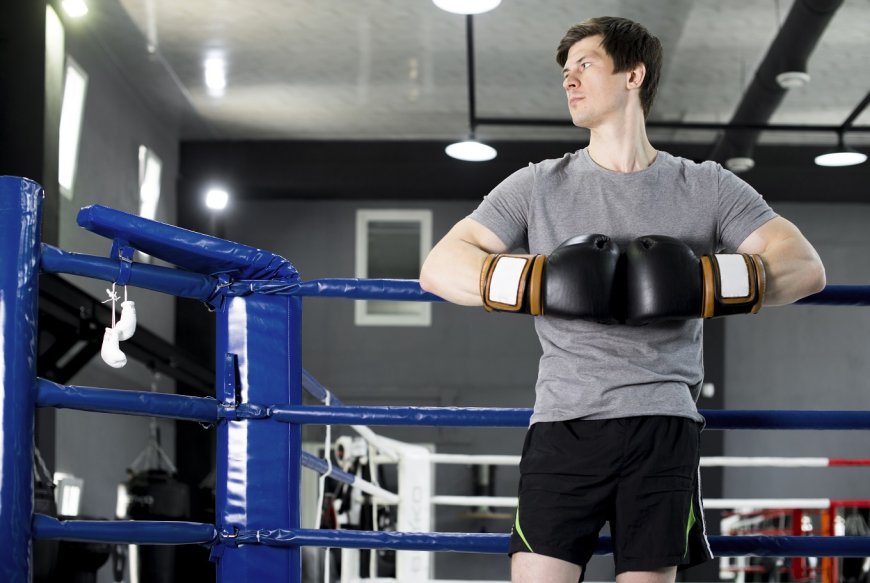A Guide to Standard Boxing Glove Weight by Skill Level
standard boxing glove weight

Boxing is not just about throwing punches; it’s a highly technical sport that requires the right gear to maximize performance and minimize injury risk. One of the most critical pieces of equipment in boxing is the gloves. However, not all gloves are created equal, and their weight plays a significant role in how effective and safe they are for different types of training and competition. This guide will help you understand the importance of choosing the correct standard boxing glove weight according to your skill level, training goals, and body type.
Why Boxing Glove Weight Matters
Before diving into the recommended glove weights by skill level, it’s important to understand why the weight of a boxing glove matters in the first place. The standard boxing glove weight directly affects how fast you can punch, how well you protect your hands, and how much impact you transfer to your opponent or punching bag. Heavier gloves provide better protection and force you to train harder, while lighter gloves allow for faster movements but with less protection.
In addition to protection and performance, different boxing glove weights are also required for specific training activities. Sparring, for example, demands heavier gloves to reduce injury risk for both fighters, while lighter gloves are typically used in competition for faster striking.
Boxing Glove Weight by Skill Level
Now, let’s look at how glove weight should vary depending on your experience in boxing.
1. Beginner (8-12 oz Gloves)
If you’re just starting out in boxing, the standard boxing glove weight for beginners generally falls between 8 oz and 12 oz. For lighter boxers or individuals weighing less than 120 pounds, 8 oz gloves may be more suitable. For those with slightly more mass, 10 oz or 12 oz gloves offer a balance between comfort and protection.
When you’re new to boxing, your primary focus is learning the basics—footwork, punching technique, and defensive skills. Lighter gloves allow beginners to focus on speed and form without adding unnecessary strain on their wrists and shoulders. However, it’s important to gradually progress to heavier gloves as your skill level increases to build strength and endurance.
2. Intermediate (12-14 oz Gloves)
Once you’ve developed some experience and are moving into intermediate levels of boxing, upgrading to heavier gloves is essential. The standard boxing glove weight for intermediate boxers typically ranges from 12 oz to 14 oz, depending on your weight and personal preference.
At this stage, you’re likely engaging in more intense training, such as sparring, bag work, and mitt work. Heavier gloves, such as 14 oz, provide better hand protection, allowing you to punch harder without worrying about injuring your knuckles. In addition, the extra weight can help build endurance, as it forces your muscles to work harder with each punch.
Brands like Wyox Sports offer a variety of boxing gloves that cater to intermediate boxers, featuring durable construction and enhanced padding to support more rigorous training sessions. Whether you’re focusing on speed or power, Wyox gloves ensure the right balance between protection and performance.
3. Advanced (14-16 oz Gloves)
Advanced and professional boxers usually train with gloves weighing between 14 oz and 16 oz. This standard boxing glove weight is often used for heavy bag training, sparring, and serious conditioning. As you advance in your boxing journey, your punches are stronger, and you need the added padding and wrist support that comes with heavier gloves to protect both you and your sparring partner.
For sparring, 16 oz gloves are generally recommended because they offer the maximum amount of padding to reduce the risk of injury, especially to your opponent. In professional bouts, however, lighter gloves (8 oz to 10 oz) are used to increase striking speed and deliver sharper punches. The heavier gloves in training help fighters condition their muscles and develop endurance, so when they switch to lighter gloves during competition, their hand speed is noticeably faster.
Wyox Sports has a range of 16 oz gloves, designed specifically for advanced training and sparring. These gloves are crafted with high-quality materials and superior padding, offering both comfort and durability, making them a solid choice for fighters at this level.
4. Professional (8-10 oz Gloves for Competition)
For professional boxers, the standard boxing glove weight used in competition is between 8 oz and 10 oz, depending on weight class. Lighter gloves allow for faster strikes, which is crucial when every split second counts in a match. However, during training, most professionals use heavier gloves (14 oz to 16 oz) to condition their muscles.
Competition gloves are typically more streamlined and have less padding than training gloves. This allows fighters to hit harder and faster but also means there's more risk of injury. That's why professionals use heavier gloves during training to ensure their hands stay protected while preparing for high-intensity bouts.
Choosing the Right Glove Weight Based on Your Body Type
While skill level is a key factor, your body weight also influences the standard boxing glove weight you should choose. Here's a general guideline:
-
Under 120 lbs: 8-10 oz gloves for training, 12 oz for sparring
-
120-150 lbs: 12 oz for training, 14 oz for sparring
-
150-180 lbs: 14 oz for training, 16 oz for sparring
-
180+ lbs: 16 oz for both training and sparring
These are just general recommendations, and you should always consult your coach or trainer to determine the best weight for your individual needs.
Conclusion
Whether you're a beginner just getting into boxing or an advanced fighter looking to sharpen your skills, choosing the right standard boxing glove weight is essential for your progress. Your gloves should match your skill level, training intensity, and body weight to ensure both safety and performance.
What's Your Reaction?

























